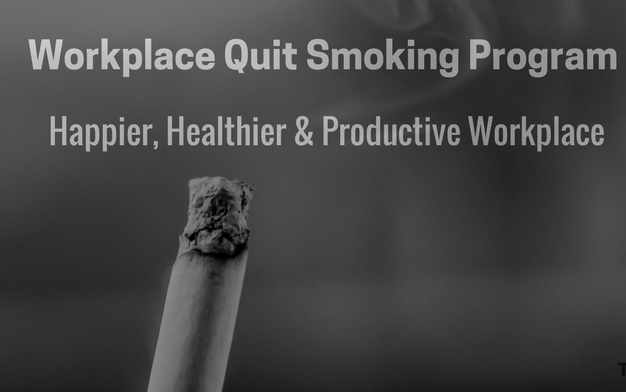Tobacco Cessation Program at Workplaces (The Guardian – 23/05/2017

The Ocean Road Cancer Institute (ORCI) and Muhimbili National Hospital (MNH) report a 100% rise in new cancer cases from 2006. Between 2000 and 2005, the institution received about 2400 to 2500 cancer patients while between the years 2006 – 2015, there have been about 56,000 cancer patients. Tobacco is the leading cause of cancer in Tanzania – a 2009 study at ORCI and MNH indicated that 32% of all cancers were due to tobacco use. According the Tobacco Atlas, World Lung Foundation:
- Every year, more than 6800 Tanzanians are killed by tobacco caused disease
- More than 50,000 children and 2,880,000 adults continue to use tobacco every day
- On an average, 2.3% – 87 men are being killed by tobacco every week
- On an average, 1.2% – 45 women are being killed by tobacco every week
Why should employers be worried?
- A smoker in Tanzania would have to spend 36.4% of the national median income to purchase 10 of the cheapest cigarettes to smoke every day, thus depriving himself/herself and the family of the resources required.
- Smoking is deadly in its own right, as a critical health risk factor and is linked to heart disease, respiratory infections, stroke, emphysema, miscarriages, and low birth weight which result in
- Increased medical costs
- Increased absenteeism
- Reduced productivity
Smoking prevention and smoking cessation programs can lead to lower medical costs in several ways. Research shows that it is far better for person to quit before smoking damages the body rather than later, when a heart attack triggers a doctor’s warning to quit.
How can you help your employees stop smoking?
The basic workplace smoking cessation approaches include:
- Comprehensive: This approach involves offering programs and activities at the workplace. Employees can then access the supports on-site and often during working hours
- Facilitated: This approach involves working with outside providers to deliver the program and activities and provide self-help materials
- Education and Information – Providing employees with information including self-help materials.
- Individual counseling can be offered at workplace or off-site and can help people who smoke, adopt to life without cigarettes.
- Group Programs usually include weekly sessions over a period of time, and can take place during or after working hours. Spouses and other family members may be invited to participate.
Tips for Success:
- Use an integrated approach that includes non-smoking policies, health benefits and cessation information, support and activities
- Understand that quitting is a process and remove as many barriers as possible around participating in activities such as location and time
- Tailor the program to your workplace, taking into consideration the needs of your employees, including accommodating shift workers and making sure written materials are language appropriate
- Take a long term approach for long term results and benefits
Reply back to bhakti@impactafya.com or call +255 754 694 643 with your feedback. We welcome your suggestions for corporate wellness tips you’d like to see covered in our future columns.
Bhakti Shah, MPH is the Founder and Managing Director of ImpactAfya Ltd, collaborating with Workplace Options and Mayo Clinic, USA to provide Corporate Wellness and EAP Solutions in East Africa. Bhakti is also the Advisor for the Africa Business Portal and the Past President of the American Chamber of Commerce in Tanzania.
